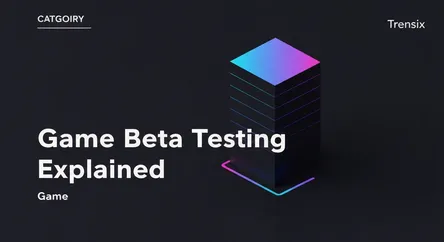Game
Game Beta Testing Explained

Discover what a game beta is, from closed tests to open access. Learn why developers use betas to refine games and how they impact the final release.
What is it?
A 'beta' in the gaming industry refers to a pre-release version of a game made available for testing. This phase follows the internal 'alpha' stage and can be either 'closed' (invite-only) or 'open' (publicly accessible). The primary purpose is to identify bugs, stress-test servers, balance gameplay mechanics, and gather crucial player feedback before the official launch. It serves as a vital quality assurance step, allowing developers to polish the game and ensure a stable experience for the final release, making it a critical part of the modern development cycle.
Why is it trending?
Beta testing has transformed from a behind-the-scenes development phase into a powerful marketing and community-building tool. Granting early access generates significant hype and media coverage, acting as a playable demo that engages customers long before launch day. For the ever-growing number of online multiplayer and live-service games, betas are essential for testing server stability under real-world conditions to avoid catastrophic launch failures. This public testing allows studios to validate design choices and build a community that feels invested in the game's success from the very beginning.
How does it affect people?
For players, participating in a beta offers an exciting sneak peek and the chance to directly influence a game's development with their feedback. It creates a sense of involvement and community. However, it's important to remember that betas are not the final product and may contain bugs, glitches, or incomplete features. For developers, the data and feedback are invaluable for making final adjustments. A successful beta can build immense goodwill and positive buzz, while a poorly received one can create negative press that harms the game's official launch.